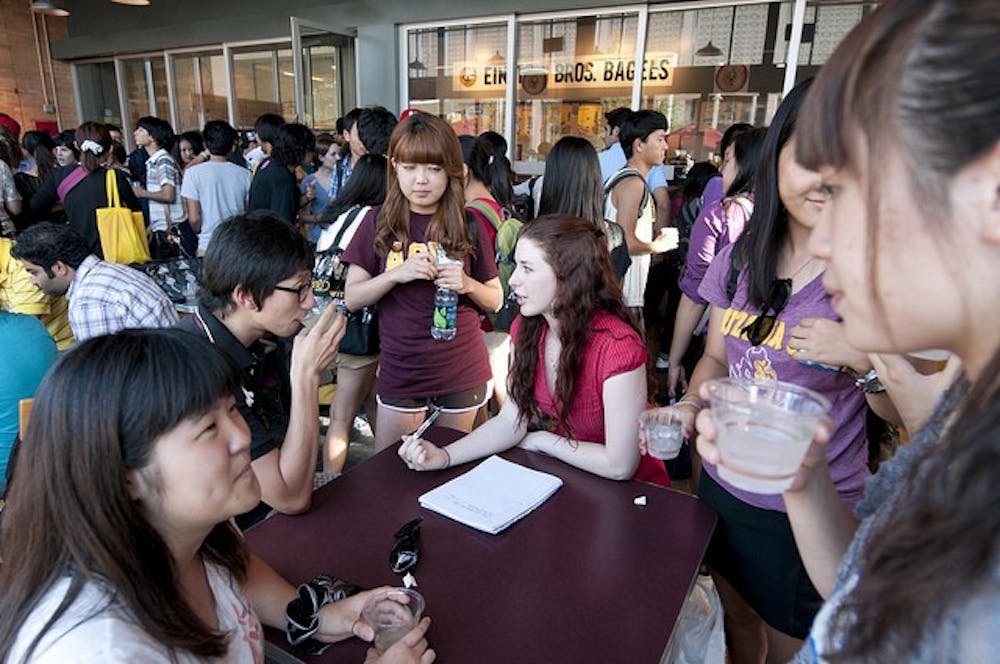I’ve always noticed a large gathering of international students around the Art Café (attached to the Einstein’s at the Memorial Union) on Monday afternoons, but I usually walk right past it. Last Monday, however, I decided to stop by and get a feel for what was going on.
Right upon entering, I was part of the Conversation Club. Easy as that. The American English Culture Program sponsors the event every week as a way for international students and native English-speaking ASU students to meet and talk about their experiences, their views, and their culture over beverages and pastries.
AECP goals for this club are to help AECP students practice English and develop friendships, while also giving students a chance to learn about cross-cultural communication.
So essentially, the club is based upon the enticing combination of meeting diverse people and also offering sweets. Win.
I admit, it was difficult starting conversations with some of the international students at the beginning. Some have not really acquired the language (hence being at Conversation Club), while others had a reserved temperament.
However, it wasn’t long before I fell into conversation with Erika Tatemi, an American English and Programs student from Japan. I asked her what I often wonder when I meet someone from another country: What is something that you think makes your culture unique? What do want Americans to understand about your culture?
She thought for a moment and said “I think one Japanese thinking makes Japan unique is called tasukeainokokoro. In Japanese it means ‘the heart of mutual help.’”
She continued to describe how his understanding was seen after the massively destructive earthquake that hit Japan in March. Because of the disastrous harm done to families and homes “people helped each other and [lent] a hand to people who suffered at the Tohoku district, for example Hukushima,” Erika said. “I think if there wasn't this thinking in Japan, damage of earthquake [could have been] much worse. And I consider this thinking [particular] to Japan.”
While this seemed to be a passing comment for her, I was very struck by the insight she offered. Language offers structure to our thoughts, so what would America be like if we had a similar word in our language?
On a more light-hearted note, Erika added, “I want Americans to understand Japanese comics! I don't like Japanese cartoon and animation because it is imagined nerd or geek. In Japanese it’s called otaku. But I like Japanese shojo manga. It is a comic for girls. Almost of them are about love. Reading them makes my heart beat fast and is very, very exciting!“
Erika then excitedly explained her love for American songs, movies, and culture. Afterwards, we exchanged email addresses and have since been messaging each other about American cinema and music. Curious minds are hard to keep apart.





